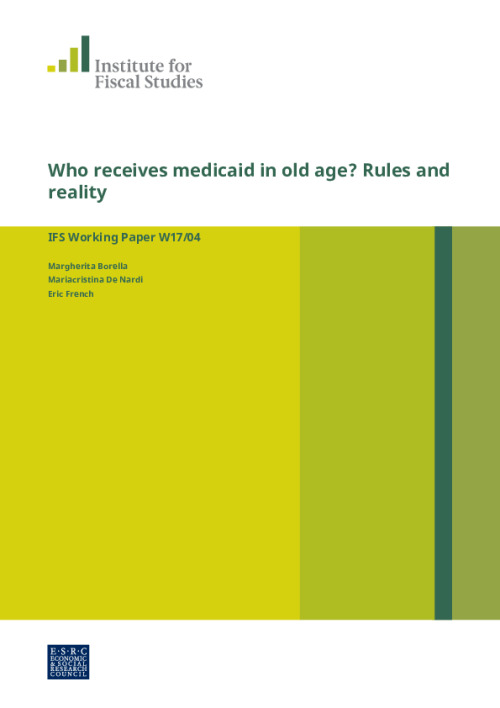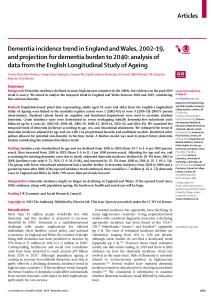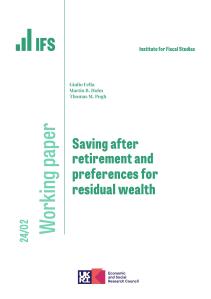Downloads

WP201704.pdf
PDF | 1.11 MB
Medicaid is a government program that also provides health insurance to the old who have little assets and either low income or catastrophic health care expenses. We ask how the Medicaid rules map into the reality of Medicaid recipiency and what other observable characteristics are important to determine who ends up on Medicaid. The data show that both singles and couples with high retirement income can end up on Medicaid at very advanced ages. We find that, conditioning on a large number of observable characteristics, including those that directly relate to Medicaid eligibility criteria, single women are more likely to end up on Medicaid. So are non-whites, but, surprisingly, their higher recipiency is concentrated in the higher income percentiles. We also find that low-income people with a high school diploma or higher are much less likely to end up on Medicaid than their less educated counterparts. All of these effects are large and depend on retirement income in a very non-linear way.
Authors

CPP Co-Director
Eric is the Montague Burton Professor of Industrial Relations and Labour Economics at the University of Cambridge and Professor of Economics at UCL.

Research Fellow University of Minnesota and Federal Reserve Bank of Minneapolis
Mariacristina is an Research Fellow at the IFS and also a Professor in the Economics Department at the University of Minnesota.

Research Associate University of Torino
Margherita is a Research Associate and an Associate Professor at the University of Torino.
Working Paper details
- DOI
- 10.1920/WP.IFS.2017.1704
- Publisher
- The IFS
Suggested citation
M, Borella and M, De Nardi and E, French. (2017). Who receives medicaid in old age? Rules and reality. London: The IFS. Available at: https://ifs.org.uk/publications/who-receives-medicaid-old-age-rules-and-reality (accessed: 30 June 2024).
More from IFS
Understand this issue

Election Special: Your questions answered
27 June 2024

What is the two-child limit in benefits?
27 June 2024

Election Special: The Labour manifesto explained
14 June 2024
Policy analysis

How would the parties’ tax and spending plans affect Scotland and Wales?
28 June 2024

What are the parties’ plans for benefits and taxes?
24 June 2024

The two-child limit: poverty, incentives and cost
17 June 2024
Academic research

The menopause "penalty"
18 March 2024

Dementia incidence trend in England and Wales, 2002–19, and projection for dementia burden to 2040: analysis of data from the English Longitudinal Study of Ageing
30 October 2023

Saving after retirement and preferences for residual wealth
18 January 2024